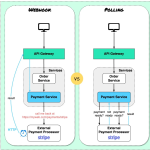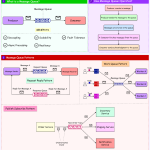API Gateways are essential components in modern software architectures, particularly microservices-based systems.
They act as a single entry point for all API requests, providing a unified interface for accessing various services and data. By decoupling client applications from backend microservices, API Gateways simplify API management and enhance the overall performance and security of the system.
An API gateway is a software layer that acts as an intermediary between clients and services in a distributed software architecture. It performs several tasks, including:
- Routing: Directing requests from clients to the appropriate services
- Security: Enforcing security policies such as authentication, authorization, access control, and encryption
- Request composition: Combining responses for a simplified user experience
- Protocol translation: Translating protocols
API Gateway Benefits:
- Reducing complex client code
- Making it easier to maintain the client and refactor services
- Reducing latency
- Hardening services with public endpoints
- Creating, sharing, maintaining, and securing APIs
Some API gateway providers include:
- Google Cloud: Provides hosting, logging, monitoring, and other features
- Amazon Web Services: Offers a free tier for new AWS customers for up to 12 months
- Emissary-Ingress: An open source CNCF project that provides an ingress controller and API gateway for Kubernetes




Good